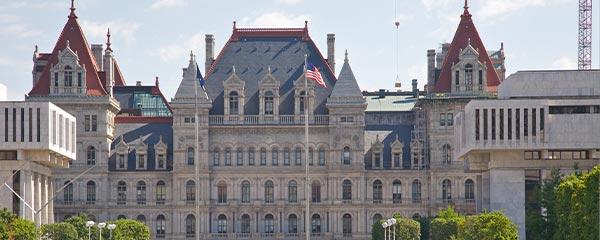Story Highlights
- 33% of U.S. workers are always working remotely, 25% sometimes, 41% never
- 55% of workers are not concerned about exposure to COVID-19 at work
- About two-thirds of remote workers want to continue to work remotely
WASHINGTON, D.C. -- The coronavirus pandemic has affected U.S. workplaces like nothing else in modern history, including high unemployment, the shuttering of businesses, and the shift of many workers to off-site, remote work.
Â鶹´«Ã½AV has been tracking full- and part-time U.S. workers' activity and attitudes amid the COVID-19 pandemic using its online, probability-based panel survey since March. The latest data, from September 14-27 polling, have provided further insights about the evolution of workers' views of remote working.
Here are the main takeaways:
1. Many Americans who were working remotely to avoid catching or spreading COVID-19 in April and May have since returned to their workplaces. A new 33% low say they are "always" working remotely, down from 51% in April amid the height of restrictions on businesses and schools. That 18-percentage-point shift has been offset by a seven-point uptick in the percentage who are now "sometimes" working remotely (from 18% to 25%) and a larger 11-point increase in the percentage "never"' working remotely (from 31% to 42%).
Â鶹´«Ã½AV's recent annual Work and Education poll showed similar findings, suggesting that remote work may have reached its ceiling during the pandemic, given that not all jobs can be performed off-site.

Line graph. U.S. workers' frequency of remote work to avoid catching or spreading the coronavirus. Currently, 33% are always working at home, and 25% are sometimes doing so. Forty-two percent are never working remotely. In April, amid tighter restrictions, 51% of U.S. workers were always remote, 18% were sometimes doing so and 31% were never working remotely.
2. U.S. workers' reports of the number of employees who have returned to their workplaces has risen sharply since April when a slim majority said very few (36%) or none (16%). Currently, workers say all/nearly all (46%) or some (20%) employees are on-site, while 23% say very few and 9% none.
| Apr. 2020 | Jun. 2020 | Sep. 2020 | |||||||||||||||||||||||||||||||||||||||||||||||||||||||||||||||||||||||||||||||||||||||||||||||||
|---|---|---|---|---|---|---|---|---|---|---|---|---|---|---|---|---|---|---|---|---|---|---|---|---|---|---|---|---|---|---|---|---|---|---|---|---|---|---|---|---|---|---|---|---|---|---|---|---|---|---|---|---|---|---|---|---|---|---|---|---|---|---|---|---|---|---|---|---|---|---|---|---|---|---|---|---|---|---|---|---|---|---|---|---|---|---|---|---|---|---|---|---|---|---|---|---|---|---|---|
| % | % | % | |||||||||||||||||||||||||||||||||||||||||||||||||||||||||||||||||||||||||||||||||||||||||||||||||
| All or nearly all employees | 28 | 37 | 46 | ||||||||||||||||||||||||||||||||||||||||||||||||||||||||||||||||||||||||||||||||||||||||||||||||
| Some employees | 18 | 21 | 20 | ||||||||||||||||||||||||||||||||||||||||||||||||||||||||||||||||||||||||||||||||||||||||||||||||
| Very few employees | 36 | 29 | 23 | ||||||||||||||||||||||||||||||||||||||||||||||||||||||||||||||||||||||||||||||||||||||||||||||||
| No employees | 16 | 12 | 9 | ||||||||||||||||||||||||||||||||||||||||||||||||||||||||||||||||||||||||||||||||||||||||||||||||
| GALLUP, 2020 | |||||||||||||||||||||||||||||||||||||||||||||||||||||||||||||||||||||||||||||||||||||||||||||||||||
3. A majority of workers are not concerned about being exposed to the coronavirus at their workplace. This includes 26% who are "not too" and 29% "not at all" concerned. Yet, 11% are "very" and 34% "moderately" concerned. Readings on this measure have not varied much since May when it was first asked in the poll. By then, Americans had become more confident that they could protect themselves from COVID-19.

Line graph. U.S. workers' concern about being exposed to coronavirus at their place of work.
Workers' reports of increased cleaning measures, social distancing and the use of personal protective equipment on the job have likely also contributed to their lack of concern about contracting the virus at work.
4. Nearly two-thirds of U.S. workers who have been working remotely during the pandemic would like to continue to do so. In all, 35% of those who have worked remotely would simply prefer to do so while 30% would like to do so because of a concern about COVID-19. Another 35% say they would like to return to working at their office.

Line graph. Remote workers' preference for work after restrictions on businesses and school closures are lifted -- 35% would simply prefer to work remotely and 30% would want to do it because of concern about the coronavirus. Thirty-five percent of remote workers would prefer to return to working in an office. These readings have been fairly constant.
Bottom Line
While there are still some restrictions on Americans' activities aimed at limiting the spread of COVID-19, U.S. workplaces have made some strides in getting back to business as usual. A majority of U.S. workers now say at least some of the employees at their workplaces are on-site. Yet, nearly half of workers say they are concerned about contracting the virus at work, and most workers who have worked remotely during the pandemic want to continue doing so.
Learn more about how the works.




